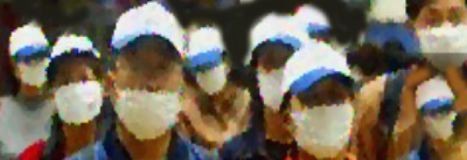
| Beijing, China: How To Survive The City's Unhealthy Smog |
 |
 Q: My spouse and I want to sign up for a trip to China with our church group. We hope to enjoy it, but are concerned by news reports about the unhealthy air in Beijing. We’re both in good condition for our age, but have medical histories of respiratory conditions. What do you recommend? LBG, Milwaukee WI A: You’re right about the smog in the Chinese capital. Sometimes the air gets so thick with pollution, everyone walks the streets wearing surgical masks. Here's some advice from a traveling senior who has been there, seen that several times. Of course, other big cities in the industrial world often match Beijing in unhealthy air. Before you sign up, get thorough check-ups with your family doctor and/or a respiratory specialist. Discuss plans and Beijing’s recent history of heavy air pollution. If you get a clean bill of health to go, be sure you take along all medications prescribed to help you make it through the smog. When you get to Beijing, check with the hotel staff on any official heavy pollution alerts in effect or expected while you’re there. During the worst, and you can see the smoky visibility, it’s best to not venture out. If you go outside to tour and shop, take an air-conditioned taxi from the hotel to your destination and back. If you’re a regular hiker or jogger, and there’s a thick Beijing smog, do your exercise routine inside where there’s air conditioning. Check out the hotel gym or pool, or just make stair-climbing your morning workout. When you venture out, make it at dawn, because sunshine increases ozone in the air, making it more polluted and adding to difficulty to breathe normally. Do your wandering in areas with many trees, and avoid heavy industrial and traffic areas. It may seem strange to a Westerner when surrounded on crowded Beijing streets by thousands of people wearing surgical-style, cloth face masks over noses and mouths. In addition to offsetting pollution, they’re also helpful in avoiding colds and flu. If you must go out during periods of heavy smog, do the same. Disposable masks cost from $1 to $5. After you get home from Beijing, you may be still affected by sore eyes, runny nose, dry cough or other respiratory discomfort. If they don’t clear up within a week, see your family physician. |